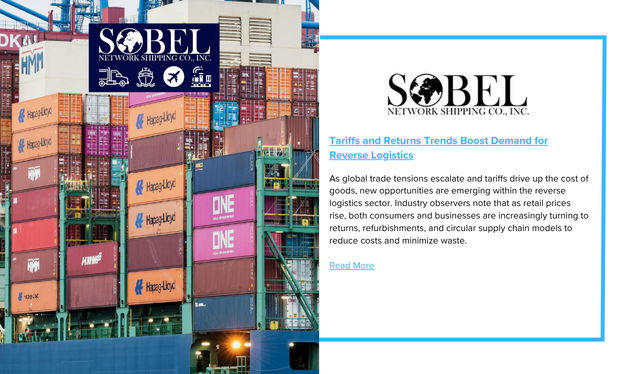As global trade tensions escalate and tariffs drive up the cost of goods, new opportunities are emerging within the reverse logistics sector. Industry observers note that as retail prices rise, both consumers and businesses are increasingly turning to returns, refurbishments, and circular supply chain models to reduce costs and minimize waste.
Increased tariffs are placing pressure on margins and consumer purchasing power, especially for electronics and high-value items. Rather than discarding damaged or malfunctioning products, businesses are investing more in refurbishment to extend product life and reduce replacement costs. This shift supports not only sustainability goals but also aligns with consumer demand for more cost-effective alternatives.
Returns themselves are evolving. Retailers have seen a significant rise in return fraud and are responding with policy changes—such as keeping certain items rather than processing costly returns. At the same time, return operations are becoming more personalized and technology-driven, with companies adopting AI tools to determine when and how to charge for return shipping or restocking.
Despite the increase in return volumes, logistics networks currently show enough flexibility to manage added capacity. However, the availability of refurbishment infrastructure is becoming a concern. The ability to process and repair returned items quickly and at scale may determine whether reverse logistics can keep up with demand in the years ahead.
Large logistics providers have invested heavily in returns management capabilities, often through acquisitions or by launching dedicated return-handling services. These expanded capabilities are particularly attractive to small and mid-sized businesses that previously relied on fragmented return channels.
Economic shifts are also influencing manufacturer behavior. Higher tariffs and uncertain trade conditions are encouraging some companies to repair components domestically rather than replace them with imported parts—adding to the need for reliable reverse logistics networks.
Market trends suggest that as consumers grow more cost-conscious and sustainability-minded, and as tariffs persist, the reverse logistics sector will continue to expand. Businesses that can streamline returns and refurbishment workflows may be better positioned to meet these changing demands.


